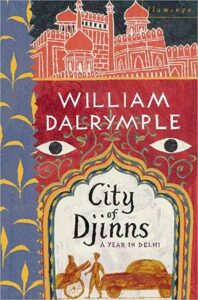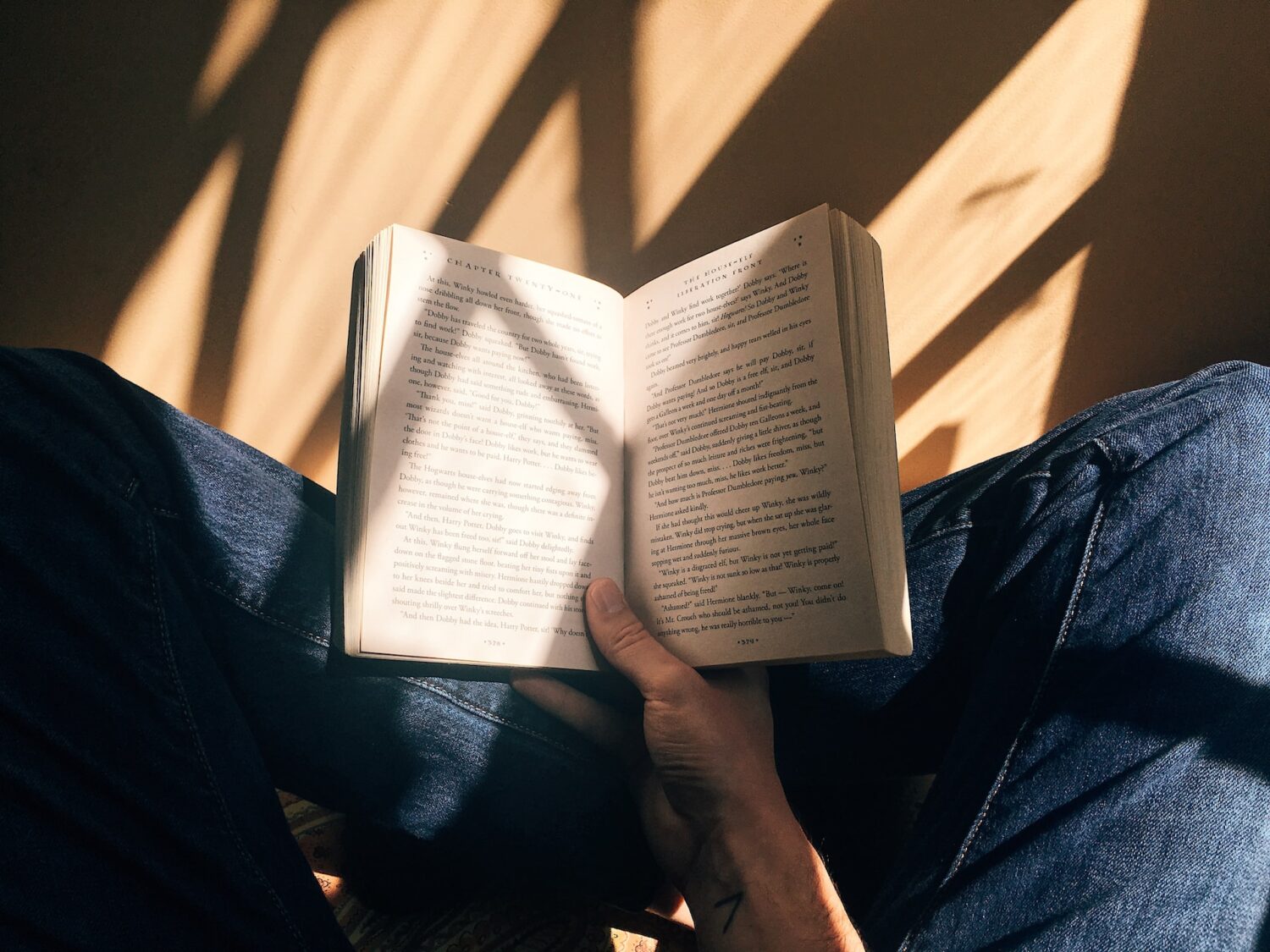“Underline the words you don’t understand and search for their meaning,” said my sister.
At the age of seven, my frequent failed attempts at picking up reading as a hobby had my elder sister constantly telling me to mark the words I didn’t know.
My vocabulary was just as sparse as the collection of books at home that only covered socio-political topics. The topics had been ‘current’ prior to my birth and the books had now succumbed to the comforting dust that enveloped them, protecting them from ever falling into use.
Frustrated with my sister’s prodding, I remember picking up the fattest book on the shelf and marking the entire first paragraph with my father’s green pilot pen. The blots of ink traversed to the following page, unintentionally highlighting other puzzles.
My sister’s push and concerns were not unfounded. I was soon supposed to be sent off to a boarding school where the primary language of communication was English, so I needed it for basic survival. With every passing day, my Hindi was being stylised to match the localised tongue, dialects, vocabulary and mannerisms of western Uttar Pradesh. No one at home nor amongst our extended family or friends spoke in English or was a habitual reader. I would freeze and stop responding to friendly questions like ‘How are you?’ in case they were asked in English. My unquenchable need for stories was being filled by mediocre Bollywood films. I spent hours being glued to the idiot box and was getting embarrassingly good at regurgitating dialogues from Namak Haram, Laawaaris, Mera Naam Joker and Hatim Tai, to name a few.
Enid Blyton, R.L Stine and Roald Dahl
“Will you even read the whole book?”
My parents asked as I urged them to buy me a Famous Five or a Goosebumps book. It was a worthwhile question as purchasing the book would require my parents to drive me down to ‘Reader’s Paradise’ – the only book shop in a corner of Saharanpur that kept a handful of children’s English books – expensive English books.

My first very own book came as a birthday present from a friend whose parents frequented big cities both in India and in the US. It was a copy of Hello, Mr. Twiddle by Enid Blyton.
Lo and behold, it was a collection of short-stories that had nothing to do with sociology or politics. It was easy to read, funny, and included caricatures of Mr. Twiddle that doubled up as colouring exercises.
I read it front to back at least ten times.
Judy Blume, Mills and Boons and Scholastic Fairs
“Don’t tell anyone that it’s my book, Ishita will be after you in line.”
A friend in boarding school giggled as she passed me Forever by Judy Blume, concealed with a newspaper. A long queue of people had read it before me and I would have to read it quickly to give it to the next person in line.
My school boasted of a respectable library but it was the disreputable and radical personal books that made the rounds amongst the larger section of students. I ended up reading only a handful that the immeasurable, clandestine grapevine brought to me.
Armed with basic communication skills and the local accent that had long been beaten out of me, the ground for my sister’s concerns had now been covered. There was no pressing need to read perse, if one would overlook the overwhelming evidence that a common characteristic of successful people is their voracious reading habit.
School came with too much to do. No one needed a new hobby nor did we need to look for stories outside of a group of friends as they would always be ripe with drama. This action-packed school life left the school library mostly deserted. We would flock around the Encyclopedia section only long enough to fill up the mandatory time that was supposed to be spent in the library.
The other avenue to books were the annual Scholastic Fairs. I would sift through many books, trying to figure out which I would understand and which I would be able to finish. Novels would turn out to be a mathematical nightmare as I would try to ascertain how much time it would take to read them. If there were 750 pages, and if it took me five minutes to read a page and roughly an hour to read 10 pages, and if I could spare half an hour a day to read, it would take me a grand total of 150 days to finish Angels and Demons by Dan Brown.
Not worth it then!
I started out with picking books on trivia and fun facts, moved to short stories and over the years ended up borrowing a few books by Jean Sasson that a friend who owned a bookstore was reading.
Jhumpa Lahiri, John Grisham and Jeffrey Archer
“I enjoy reading though I am not a big reader, can you suggest some books?”
I asked a new friend I made at college. She lent me a copy of Interpreter of Maladies by Jhumpa Lahiri. After a month or so, I told her how much I enjoyed the book. The very next day, she brought me a copy of The Namesake by Lahiri and told me that her mother loves the author as well. Just when I finished it, Lahiri’s Unaccustomed Earth hit the stores, but I didn’t want to spend my money on a new book.
There should be folklore written on the shoestring budgets that college children survive on and the heroes of these stories are the ‘fadis’ or the flea markets where everything is cheap. The Kamla Nagar market footpath is bejeweled by street vendors who sell second-hand, pirated books for a small fraction of the price.
The books were cheap enough for me to feel okay about buying the books even if I didn’t finish reading them. Little did I know that that wasn’t going to be the case anyway. On recommendations from my new friends, I bought about ten books by John Grisham and Jeffrey Archer. I was done with them in a matter of days. My friend continued to loan me books from authors that either she was reading or were at home, and my trips to the makeshift book stores kept increasing.

City of Djinns by William Dalrymple brought me closer to Delhi and to other friends who loved history. We would buy a Dalrymple book each and then exchange them to be able to read double the number of books at the same price. While fiction always had my heart, a tryst with history made way for more serious and relevant reading
My brother’s friend was reading Gandhi’s memoir, which I borrowed and stepped into non-fiction reading for leisure. Soon I was being called out for reading political and philosophical books by Arundhati Roy and Julian Barnes respectively.
“Why do you want to be outraged and pessimistic? You shouldn’t read such books,” said my brother while deriding the choice of my books. This was my first interaction with someone’s discomfort with non-majoritarian ideas and choices and the universe of books suddenly split into ‘such-books’ and ‘non-such-books’.
For me they were and all have been the same, because the experience of reading as I was exploring at that time was to engage with diverse ideas. As a young student it was only prudent to dabble in diversity as I was finding my own place and self in the world.
I finally had access to books I enjoyed, enough money to buy them and a group of friends who enjoyed reading and discussing these with me.
The question at hand now was, which books?
Aldous Huxley, Kurt Vonnegut and Margaret Atwood
“I like reading Historical Fiction and Philosophy, what about you?”
Literary works of Magical Realism, Modernism, Romanticism and some contemporary poetry maybe, said my new friend who was studying literature. I knew we were going to be friends for a long time.
Marquez, Huxley, Vonnegut, Atwood, Hugo, Kafka now started filling up my room. New book shelves had to be bought. Every week I would go ask her for suggestions and discuss the last books that I had read. Weekends were spent on reading marathons. On Weekdays, packed like sardines in the metro on my way to the office, I would be reading my book as it opened just about an inch.
There was never a dull moment as I always had a book that I was reading;
I started following authors, their biographies, long lists and short lists for bookers, literary festivals, book launches. I always have a book that I am currently reading, a set of virgin books on my shelf and a list of books that will soon be ordered when the pipeline starts drying.
Manoranjan Byapari, Benyamin, Perumal Murugan
“Does this have an English translation?”
I ask as I flip across books at stores during my travels or when someone recommends classics from regional literature. There mostly is one for the popular ones – a few that receive the ungenerous benevolence offered by translations, making them easier to be read but difficult to be felt.
This makes me think about learning new languages. What fun would it be to breathe in the beauty of folklore in Meitei or revel in the lyrical symphonies of Urdu?
If not new languages, at least I could become better at the one Indian language that I have always known?
दरकार दड़बा अहमकाना
“Underline the words you don’t understand and search for their meaning,” I tell myself as I pick up रेत-समाधि by Geetanjali Shree.
Parikrama Chowdhry shares her experiences of a linear life peppered with loopy living.
Featured image: Blaz Photo / Unsplash

